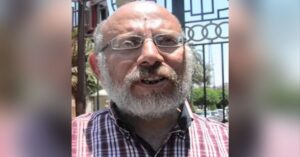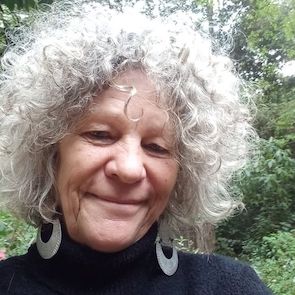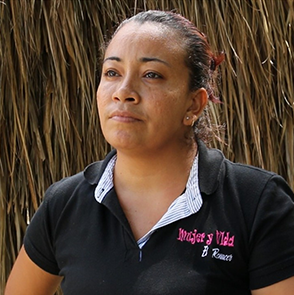The following is based on a communication sent by the UN Special Rapporteur on Human Rights Defenders and other UN experts to the Government of Saudi Arabia on 30 November 2022, concerning the alleged arbitrary detention, following the expiry of their sentences, of the human rights defenders Mohammad Al-Rabiah, Issa Al-Nukhaifi and Mohammad Al-Qahtani and concerns for their physical and mental health.
The communication remained confidential for 60 days before being made public, giving the Government time to reply. A reply from the Government was received on 30 January 2023.
This is a shorter version of the original communication.
BACKGROUND
Mr. Mohammed Al-Rabiah is a human rights defender working for women’s rights and advocating for the end of male guardianship in Saudi Arabia. He was arrested on 15 May 2018 for his advocacy on women’s right to drive, and sentenced in April 2021 to six years in prison, reduced to four years and six months on appeal. He was the subject of a previous communication sent to the Government of Saudia Arabia on 20 May 2021 in which I and other UN experts expressed concerns about acts of torture that he was subjected to during his almost two years in pre-trial detention in Jeddah’s Dhahban Prison. This included reports of beatings, electric shocks and being hung upside down, as well as being starved during the first year of his detention. The Government replied to this communication in July 2021.
Mr. Issa Al-Nukhaifi is a human rights defender, anti-corruption activist and lawyer who advocates against the Government’s policy of forced displacement of persons from the borders between Saudi Arabia and Yemen without adequate compensation. He has also been critical of and protested against Saudi Arabia’s war on Yemen. He was the subject of four communications sent to the Government of Saudia Arabia between July 2016 and November 2021. His case was included in reports of the Secretary-General on cooperation with the United Nations in the field of human right following his six-year prison sentence issued on 28 February 2018, with a six-year travel and social media ban upon release, for his cooperation with the Special Rapporteur on extreme poverty to Saudi Arabia during a visit in January 2017. His detention has been declared arbitrary by the UN Working Group on Arbitrary Detention.
Dr. Mohammad Al-Qahtani is a human rights defender and a founding member of the Saudi Civil and Political Rights Association (ACPRA), a leading human rights organisation in Saudi Arabia. He was convicted on 9 March 2013 and sentenced to ten years in prison for “refusing to submit to the will of the King,” “incitement,” and “communicating with foreign entities.” The case of Dr. Al-Qahtani was included in the 2021, 2020, 2019, 2013 and 2012 reports of the Secretary-General on cooperation with the United Nations in the field of human rights as a result of his interrogation, travel ban and sentencing to 10 years of imprisonment for allegedly providing false information to outside sources, including UN human rights mechanisms. His case was also previously raised with the Government in multiple communications between July 2016 and November 2021.
These previous communications, along with the Government replies, can be found on the OHCHR database searchable here.
ALLEGATIONS
The case of Mr. Mohammad Al-Rabiah
Mr. Al-Rabiah reportedly started a hunger strike in late September 2022 when he learned that he would not be released at the end of his term. He was allegedly informed by prison officials a few days before his scheduled release that the Supreme Court had overturned his sentence, and that he would stand trial again. He remained in detention, was reportedly not informed of any new charges or when the new trial would take place and was reportedly not provided with legal assistance.
The case of Mr. Issa Al-Nukheifi
On 15 October 2022 Mr. Issa Al-Nukheifi was due to be released at the end of his sentence, instead of which he continued to be held in detention. He reportedly did not receive any explanation by prison authorities or other sources as to why he was not released on time, and he was reportedly not provided with legal assistance. He reportedly subsequently joined Mr. Al-Rabiah in his hunger strike.
The case of Dr. Mohammad Al-Qahtani
In May 2022, Dr. Al-Qahtani went on hunger strike to demand transfer from his cell after reportedly being beaten by co-detainees who suffer from mental illness. His request was reportedly not met. In October 2022, Dr. Al-Qahtani was again attacked by co-detainees who suffer from mental illness, who were reportedly encouraged by another cellmate. His family were fearful that he may continue to be attacked, putting his life in danger, in particular after the death in prison of another human rights defender, Dr. Moussa Al-Garni, in October 2021 in similar circumstances. Dr. Al-Garni was reportedly subjected to beatings and harassment by co-detainees in his cell, possibly including by supporters of the Islamic State of Iraq and the Levant (ISIL), due to his reformist views. Dr. Al-Garni was found dead in his cell with signs of torture and broken ribs. He was the subject of a separate communication sent to the Government of Saudi Arabia in 2021.
Dr. Al-Qahtani completed his 10-year prison sentence on 21 November 2022 but remains imprisoned. He has reportedly had no access to legal counsel or contact with his family and he has reportedly not been informed in relation to his release.
CONCERNS
Without wishing to prejudge the accuracy of the above-mentioned allegations, we used the communication to express our grave concern for the physical and mental health as well as the integrity of the three detained human rights defenders.
We expressed particular concerned about the allegations of holding Dr. Al Qahtani in the same cell with detainees who have been reportedly violent, thereby exposing him to physical attacks and putting his life in danger, in what amounts to ill-treatment by not moving him to a safer place.
We also highlighted our fear that due process has not been followed and that the above-mentioned human rights defenders had not been released upon completing their sentences, in violation of international standards for fair trial. We noted what appears to be an emerging trend to keep human rights defenders in prison after having completed their sentence by overturning their original sentence and ordering new trials without providing them with sufficient information or legal assistance, in violation of the ‘non bis in idem’ principle (the prohibition of double jeopardy).
RESPONSE FROM THE GOVERNMENT
In its response, the Government contested the information contained in our communication and stated that the human rights of all are protected under Saudi Arabia’s national law, and that any restrictions imposed thereon were applied in compliance with the Universal Declaration of Human Rights.
Concerning the three human rights defenders specifically, the Government stated:
“The case of citizen Mohammad al-Rabiah was clarified in the response to the above-mentioned joint communication AL SAU 6/2021, dated 20 May 2021, which stated that his case was still being considered by the Appeal Court. When the Appeal Court handed down a judgment, an appeal in cassation was lodged with the Supreme Court, and the case is still pending before the Supreme Court.
With regard to the case of citizens Issa al-Nukhaifi and Mohammad al-Qahtani, they were charged with committing a number of criminal offences within the prison and with inciting others to commit criminal offences at the end of their sentences. The Public Prosecution Service investigated the offences with which they were charged and issued a warrant for their arrest and for periods of detention based on the Code of Criminal Procedure. The case is still being investigated and they are both detained in the Riyadh Correctional Facility.”
In relation to concerns as to the obstruction of the HRDs’ contact with family members and the outside world, the authorities stated: “The persons in question are treated in a manner that preserves their dignity and guarantees all their rights, just like other detainees and prisoners. They enjoy the right to receive visits and to communicate with others.” However, the State also underlined that the Code of Criminal Procedure “permits the investigator to prevent the accused from contacting other persons and from receiving visits for a specified period for the benefit of the investigation, without prejudice to the right of the accused to contact his lawyer or legal representative.”
With regard to the health of Dr. Al-Qahtani, the Government stated that he “receives the necessary medical care. His health condition is monitored and he is regularly provided with the necessary medication, since he suffers from high blood pressure.” They further stated that Dr. Al-Qahtani “was not subjected to any type of assault by inmates or other persons, and he is detained in the designated wing.”



